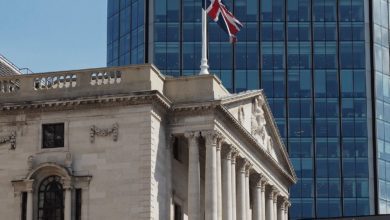UK economy slows to 0.1% in third quarter
Economists expect momentum to weaken further over the second half of the year as high interest rates and uncertainty around the budget weigh on household and business spending

Register to get 1 free article
Reveal the article below by registering for our email newsletter.
Want unlimited access? View Plans
Already have an account? Sign in
The UK’s economic growth slowed to 0.1% in the third quarter, falling short of expectations from City analysts and the Bank of England (BoE).
The Office for National Statistics said monthly output slipped 0.1% in September, with earlier figures for July and August revised down. The data arrives ahead of chancellor Rachel Reeves’s budget on 26 November.
Reeves said the budget “will take the fair decisions to build a strong economy that helps us to continue to cut waiting lists, cut the national debt and cut the cost of living”.
Story Stream: More on Economy
Economists expect momentum to weaken further over the second half of the year as high interest rates and uncertainty around the budget weigh on household and business spending. Manufacturing has remained in recession. Services output grew 0.2% over the quarter and remained the strongest performer. Construction rose 0.1%, while production – including manufacturing – fell 0.5%.
A sharp fall in car output in September followed a major cyber attack on Jaguar Land Rover that shut its factories. The ONS said auto production dropped 28.6% in the month, pulling down the overall GDP figure.
The figures follow labour market data showing unemployment reached 5% for the first time since January 2021 and employment growth continued to contract.
Signs of weakening demand are expected to increase pressure on the Bank of England to cut interest rates from the current 4% before the end of the year, after policymakers held borrowing costs unchanged last week while seeking further evidence of easing inflation and slower activity.
Liz McKeown at the ONS said: “There was a particularly marked fall in car production in September, reflecting the impact of a cyber incident, as well as a decline in the often erratic pharmaceutical industry.
“Services were the main contributor to growth in the latest quarter, with business rental and leasing, live events and retail performing well, partially offset by falls in R&D and hair and beauty salons.”







